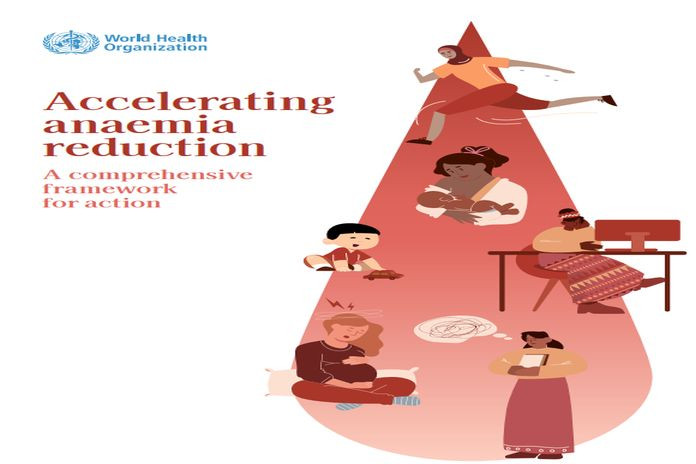The World Health Organisation (WHO) has called on countries to accelerate action to halve anaemia prevalence in women of reproductive age by 2025.
In a statement, published on CNG Media on Saturday, WHO made the call while launching its first-ever comprehensive framework on reducing anaemia.
“Progress on reducing anaemia has been slow and the world is not on track to reach the global target.
“Anaemia is a serious global public health problem, affecting 571 million women and 269 million young children worldwide.
“In 2019, anaemia affected 40 per cent of children between six months and five years of age.
“It also affected 37 per cent of pregnant women and 30 per cent of women 15–49 years of age.”
The global health institution noted that anaemia is most prevalent in low- and middle-income countries.
Anaemia increases the risk of infections and death, impairs cognitive performance and causes extreme fatigue and poor pregnancy outcomes.
It also causes loss of earnings and poor growth and development and it is a strong indicator of overall health.
Francesco Branca, Director of WHO’s Department of Nutrition and food safety, said many research works about anaemia have focused on prevention and treatment of iron deficiency.
Read Related News:
HIV: Biochemist practitioners to release test-treatment for cure
Doctors seek pay rise give FG 2 weeks deadline
Measles cases near 1,000 in S/Africa
“However, anaemia is a complex condition with multiple causes.
“Such causes include other nutritional deficiencies, infections, inflammation, gynaecological and obstetric conditions as well as inherited red blood cell disorders.
“All these must be addressed to effectively prevent and treat anaemia,” Branca said.
The new framework sets forth ways to address the direct causes, risk factors and broad social inequities that are fundamental drivers for anaemia.
It describes the necessary comprehensive approach that brings together multiple sectors and actors and lays out key action areas to improve the coverage and uptake of interventions
Acknowledging that health remains the predominant sector for delivering many of the recommended interventions, the framework also proposes actions that other societal stakeholders can take.
These include governments, civil society, academia, researchers, funding agencies, international organisations and media.
Each has its particular role to perform in reducing anaemia and keeping people healthy.
The framework is launched during the International Maternal Newborn Health Conference.
Do you have a flair for Citizenship Journalism? Share story(ies) of happenings in your area with The NewsZenith on WhatsApp: 08033668669 or thenewszenith@gmail.com
